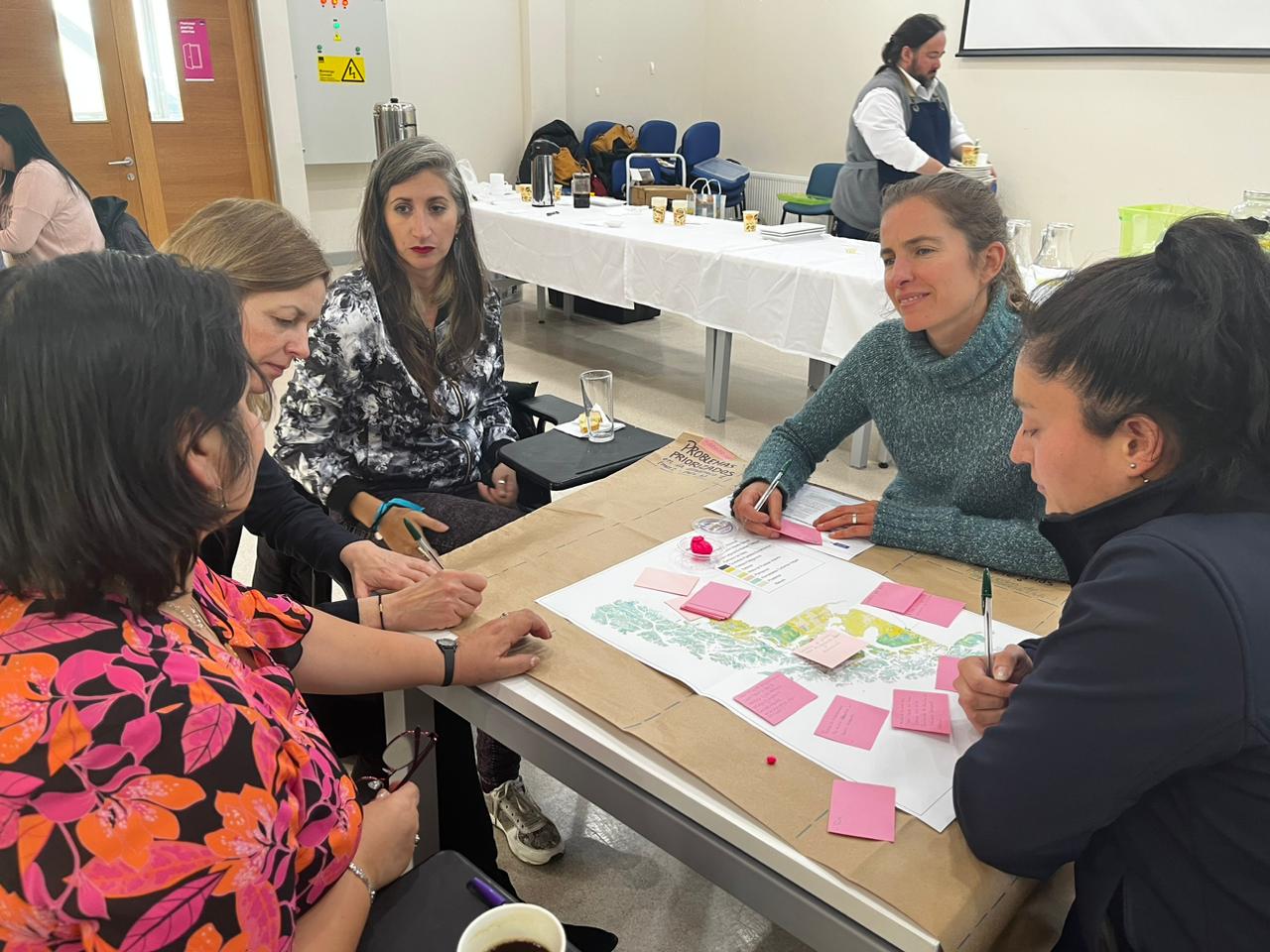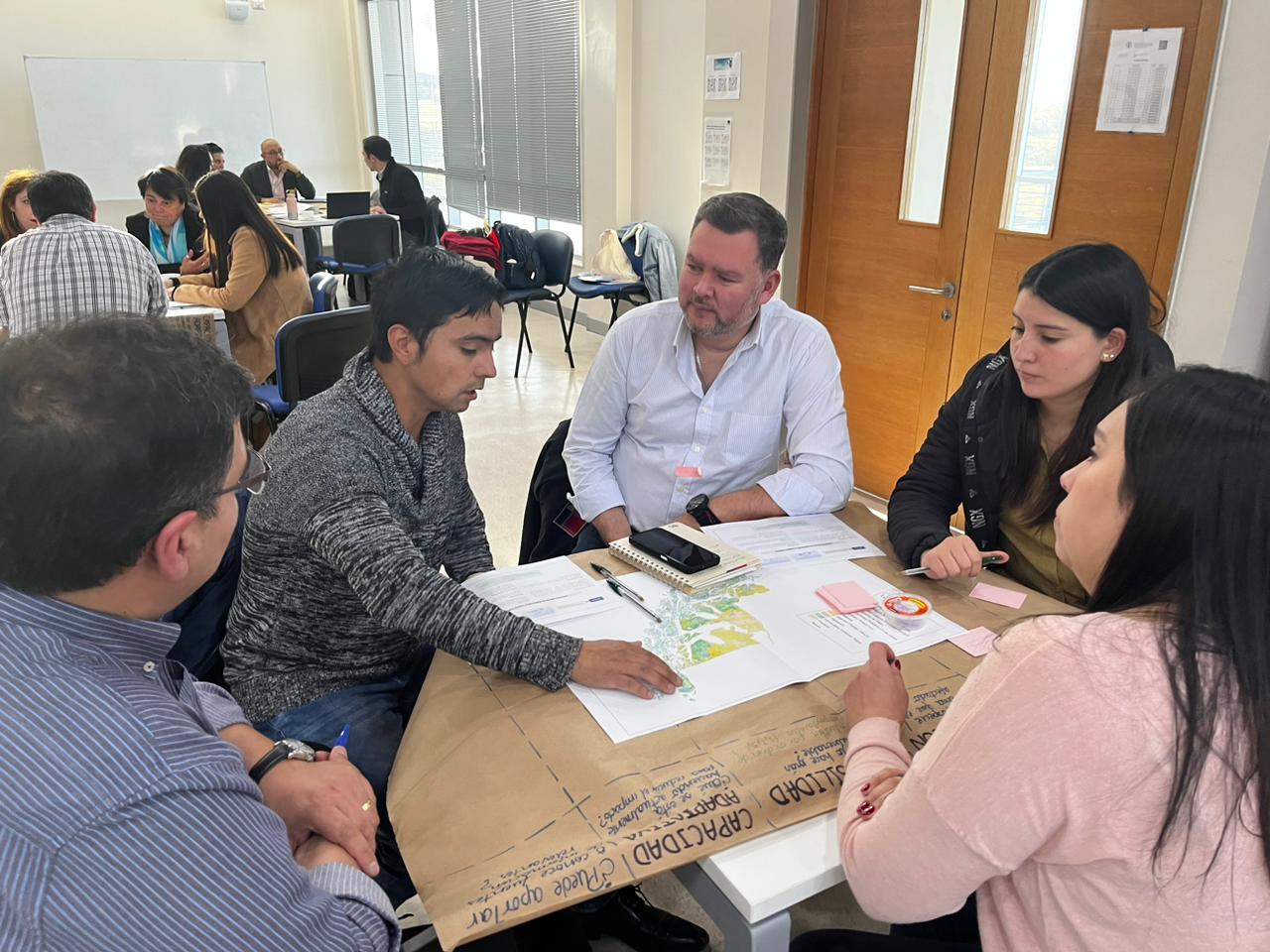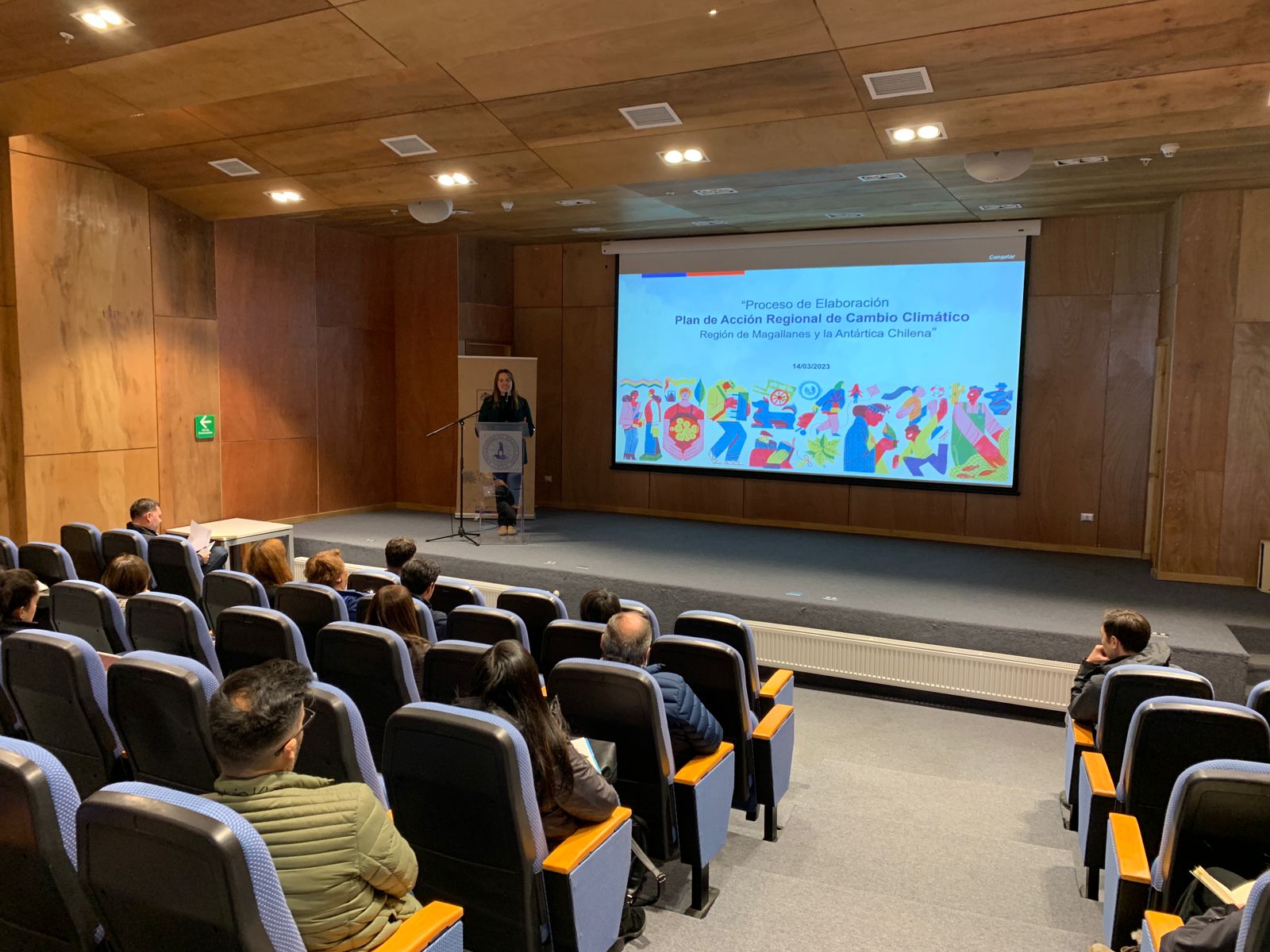Representatives of local authorities and civil society are working together to identify climate vulnerabilities and risks in the region.
Punta Arenas, 14 March 2023. The First Regional Workshop on Climate Change Vulnerability and Risks in the Region of Magallanes and the Chilean Antarctic was held this Tuesday at the headquarters of the University of Magallanes (UMAG) in Punta Arenas. This event marks the beginning of the participatory process for the development of the Regional Climate Change Plan (PARCC), a key instrument for the planning of actions to be implemented from the territories to address this phenomenon.
The preparation of the PARCC of Magallanes and the Chilean Antarctic is supported by the European Union's Euroclima programme through the International and Ibero-America Foundation for Administration and Public Policy (FIIAPP-Spanish Cooperation).
The activity was convened by the Regional Government of Magallanes and the Chilean Antarctic and the Ministry of the Environment, inviting representatives of the Regional Climate Change Committee (CORECC), the Climate Emergency Roundtable, mayors and representatives of civil society in the region.
Chile has made progress in consolidating a State Climate Policy. The Frameork Law on Climate Change, enacted in June 2022, is the roadmap for achieving carbon neutrality in the country by 2050 and defines the mechanisms that the country will use to address the phenomenon.
One such mechanism is the Regional Climate Change Plans (RCCPs), key instruments for planning the actions to be implemented from the territories to meet national climate objectives, the transformation towards a sustainable climate economy and the adoption of climate resilience measures.

Alejandro González Fernández, Technical Specialist of the Euroclima Programme at FIIAPP emphasized that "in the global fight against climate change, actions in specific territories that incorporate the point of view of the different local actors through participatory tools and methodologies such as this workshop are becoming increasingly important".
The Regional Ministerial Secretary (SEREMI) for the Environment, Daniela Droguett Caro, pointed out that "Magallanes is one of the regions most vulnerable to the climate crisis and this summer we were able to demonstrate this with the effects of the water shortages affecting our territory. We have to act now and with planning instruments that incorporate the vision of the communities, as we are doing through the Regional Action Plan".
The Plan aims to incorporate the vision of all the territories and will be nourished by the work carried out during 2022 by the Civil Society for Climate Action. In this regard, Gabriela Simonetti Grez, director of the project, indicated that "the Territorial Climate Dialogues sought to know the perceptions and proposals that citizens had on how to address Climate Change from the region. We travelled to the different provinces and interviewed more than 120 people, who not only told us what they perceived in terms of negative impacts, but also proposed and prioritised goals, which were delivered to the Regional Government and SEREMI of the Environment to be an input for the PARCC".
In this first workshop, the results of the first chapter of the PARCC, which considers the regional context of Climate Change, were presented and the climate projections for the region and the observed impacts of Climate Change on the social, environmental and economic sectors were analysed. Subsequently, group work was carried out to define the impact chains that address the main issues previously identified.

About Euroclima
EUROCLIMA+ is a programme funded by the European Union and co-financed by the German federal government through the Federal Ministry for Economic Cooperation and Development (BMZ), as well as by the governments of France and Spain through the Ministry of Foreign Affairs, European Union and Cooperation.
The Programme's mission is to reduce the impact of climate change and its effects in 18 countries in Latin America and the Caribbean, promoting mitigation, adaptation, resilience and climate investment and biodiversity. It is implemented according to the "Spirit of Team Europe" under the synergistic work of seven agencies: the Spanish Agency for International Development Cooperation (AECID), the French Development Agency (AFD), the Economic Commission for Latin America and the Caribbean (ECLAC), Expertise France (EF), the International and Ibero-America Foundation for Administration and Public Policy (FIIAPP), the German Society for International Cooperation (GIZ) GmbH, and the UN Environment Programme (UNEP).

